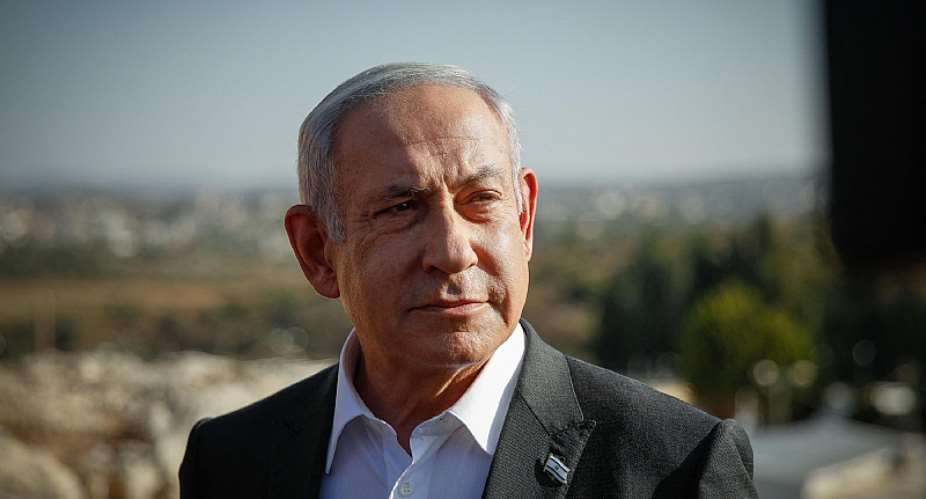Iran has launched more than 300 strikes on Israeli soil, marking a significant escalation in tensions following Israel’s purported attack on its consulate in Syria, resulting in the loss of numerous senior Iranian Revolutionary Guards. Despite the lack of substantial damage on the Israeli side, these strikes have unmistakably crossed a red line for Israel. While the United States, United Kingdom, France and other allies such as Jordan have assisted Israel in intercepting or neutralizing 99% of the Iranian missiles, the US is urging Israel to exercise restraint and avoid direct retaliation.
However, within Israel’s government, there are voices advocating for a strong response to Iran’s aggression. Despite pressure from the hawkish elements within Netanyahu’s administration, it is crucial to recognize the intricate geopolitical dynamics at play. Israel must tread carefully to respond effectively without alienating its allies or escalating the situation further. Here are five potential responses Israel might consider:
Military Restraint and Defensive Measures: Israel may opt to prioritize bolstering its defensive capabilities over immediate retaliatory strikes. This could involve deploying additional missile defense systems like the Iron Dome to safeguard infrastructure and population centers. Moreover, reinforcing military presence along borders could serve as a deterrent against future aggression from Iran or its proxies.
Cyber Operations and Intelligence Gathering: Leveraging its advanced cyber capabilities, Israel could engage in covert cyber operations aimed at disrupting Iran's military infrastructure or gathering intelligence on potential future attacks. Such operations could strategically target critical Iranian assets while minimizing the risk of direct military confrontation.
Engagement with Regional Partners: Israel could seek closer collaboration with regional allies, such as Saudi Arabia and the United Arab Emirates, to coordinate a unified response against Iran’s aggression. Joint efforts might include intelligence sharing, military exercises, and diplomatic initiatives aimed at isolating Iran and countering its destabilizing activities in the region.
Humanitarian Aid and Reconstruction Efforts: In a demonstration of commitment to humanitarian principles, Israel could provide aid and support to populations affected by Iran’s attacks. This could entail sending medical supplies, food assistance, and other forms of humanitarian aid to alleviate suffering and garner sympathy from the international community. Fortunately for Israel, aside from one young girl who sustained a shrapnel injury, no one else was hurt in the Iranian attacks.
Diplomatic Channels and International Pressure: Pursuing diplomatic avenues through international organizations like the United Nations, Israel could condemn Iran’s actions and rally support for imposing economic sanctions or other measures against Iran. Close collaboration with key allies, particularly the United States, could facilitate the drafting and passage of resolutions condemning Iran’s aggression.
In navigating this volatile situation, Israel must carefully weigh the potential consequences of each response to avoid antagonizing allies or escalating tensions further. Strategic restraint, coupled with proactive diplomacy and defensive measures, may offer a path toward de-escalation while safeguarding Israel’s interests and security.





 Select your running mate from Bono region or lose our support – Dormaahene tells...
Select your running mate from Bono region or lose our support – Dormaahene tells...
 Bawumia’s 100% mineral ownership promise mere political rhetoric – Alan Kyeremat...
Bawumia’s 100% mineral ownership promise mere political rhetoric – Alan Kyeremat...
 Supreme Court adjourn celebrity alcohol endorsement case indefinitely
Supreme Court adjourn celebrity alcohol endorsement case indefinitely
 Choose a son of Bono as your running mate or lose our support — Dormaahene to B...
Choose a son of Bono as your running mate or lose our support — Dormaahene to B...
 Ignatius Baffour-Awuah is worthy to be your running mate; consider him – Dormaah...
Ignatius Baffour-Awuah is worthy to be your running mate; consider him – Dormaah...
 ‘We didn't betray NDC in 2020 elections’ — National Peace Council reacts to Asie...
‘We didn't betray NDC in 2020 elections’ — National Peace Council reacts to Asie...
 2024 election: A vote for Bawumia is a vote to continue Nana Addo’s legacy of ‘b...
2024 election: A vote for Bawumia is a vote to continue Nana Addo’s legacy of ‘b...
 Be careful during rainy days; don’t go near any sagging, fallen electrical condu...
Be careful during rainy days; don’t go near any sagging, fallen electrical condu...
 Don't go near sagging or fallen electrical conductors during rainstorms; it coul...
Don't go near sagging or fallen electrical conductors during rainstorms; it coul...
 Ghanaians are not honest people – Sam Okudzeto
Ghanaians are not honest people – Sam Okudzeto
